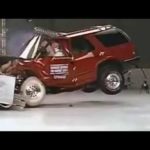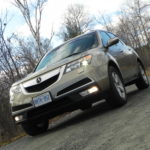Buying a Used Compact Car 101
I recently compiled a lengthy feature for AutoTrader.ca to help used-car shoppers decide on the best used compact car for them, and how to shop smart for the model they’re most interested in. With a focus on newer used compact cars that are affordable to buy, cheap to run, and cheap to fuel, this helpful story features everything you need to know if you’re considering a used Corolla, Civic, Jetta, Cruze, Elantra, Lancer, Focus, Mazda3, or Sentra.
If you, or anyone you know, is looking for a used economy car, this story puts a plethora of information into a single resource. Read everything you need to know about shopping for a used compact car here.
Shopping for a used high-mileage ‘beater’? Here’s some important reading on tips and checks you should consider mandatory.
Considering a used luxury car? Give this a read, for some information on how to shop smart for a used premium ride.
Here are Some General Used-Car Shopping Tips
- A ‘safety’ or ‘certification’ isn’t the same as a warranty– and it’s no guarantee that the car you’re buying is in excellent shape or free of problems. Have a potential used car inspected by a factory-trained mechanic wherever possible. They’ll be aware of the common and systematic problems that may affect the vehicle in question.
- In some cases, recalls are issued by the vehicle’s manufacturer to correct a potentially dangerous safety-related issue. The vehicle’s dealership can typically check for the performance of recall-related work if you provide them with the VIN number. Check for recalls on the model in question, then determine whether or not the recall-related work has been performed.
- Do your homework, and remember that the internet is your friend when shopping for a used ride. Many websites are available with used car reviews and forums where current and past owners meet to share their experiences. This can give potential shoppers some insight into potential problems and issues.
- Key in a good used-car shopping experience is research and patience. Don’t rush out and buy the first model you see, but compare several to one another and look at alternatives. Research online to see which used vehicles are known to be reliable and worry-free, and which aren’t.
- Be sure to have a look underneath the car, or bring a mechanically inclined friend along for the ride. Leaks, rust or dents beneath the vehicle should be questioned and scrutinized. If the model you’re looking at has any holes or excessive corrosion, move onto another vehicle.
- Check out the consumable parts. Be sure tires, brakes and the clutch are in good shape, and not in need of replacement. Some used car sellers would love to pass the added expense of a brake job or new clutch on to you—so it pays to check. Not sure how? A mechanic of your choosing would love to help.
- Turn off the radio and listen for unusual noises from under the hood or under the car’s body. Any clunking, rubbing or grinding is probably a sign of trouble. Properly maintained vehicles will present themselves with minimal noise from the suspension when travelling over rough roads.
- Finding a good deal on a locally serviced vehicle is a bonus. If your potential used vehicle candidate is available with service records from the dealership selling it, you’ll benefit from a clearer idea on how well the car was taken care of. If you’re not sure of the vehicles service history, budget for a full fluid change and tune up, just to be safe.
- Many carmakers have adopted 100,000 kilometer or greater powertrain warranties in the past several years. If you’re looking for a newer used car, you may be able to find something with low miles and a big portion of its warranty remaining.









